Institute draws on neighboring theater village to provide practical as well as theoretical grounding in contemporary techniques, Li Yingxue reports in Huichang, Jiangxi.
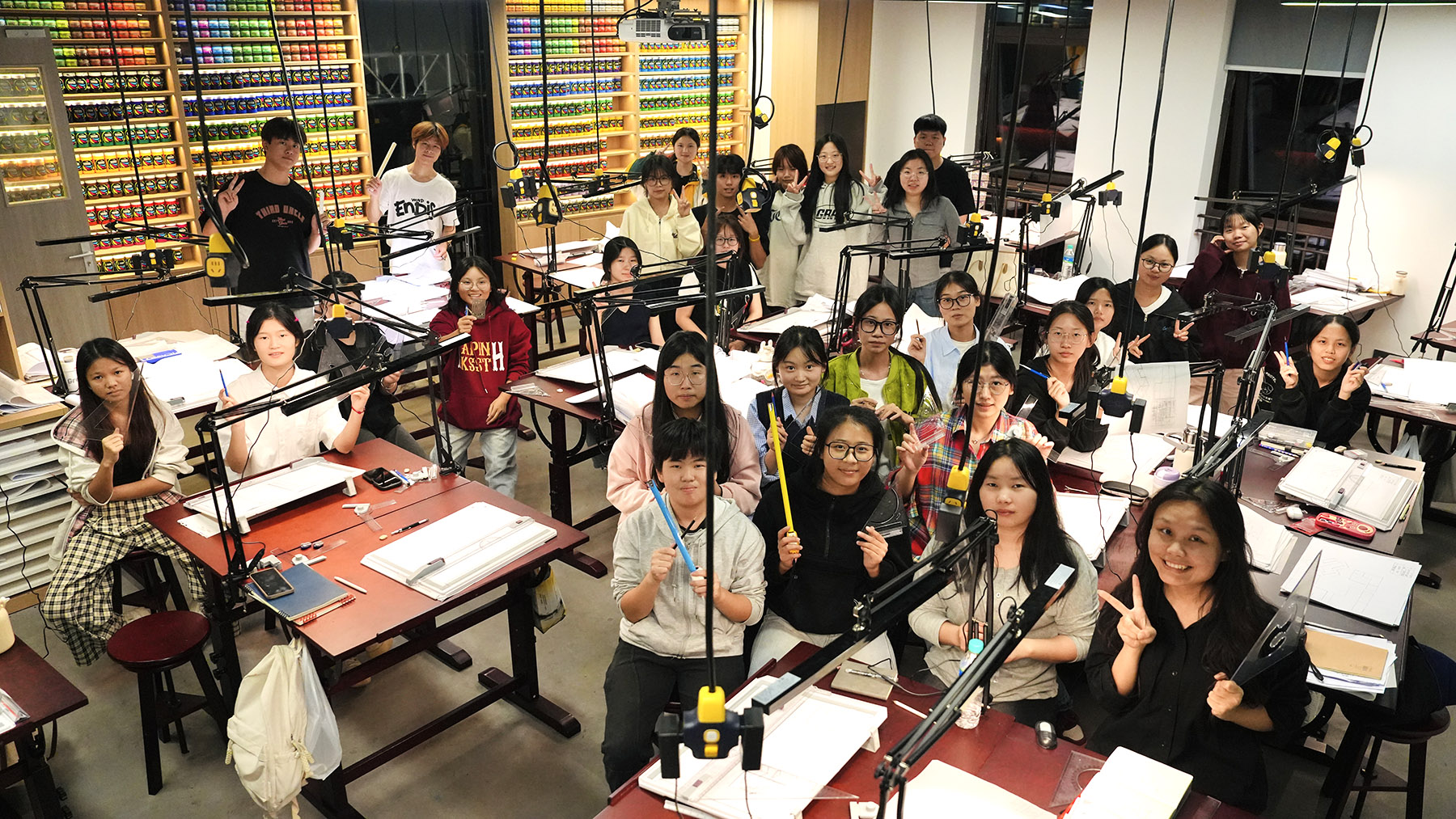
Nestled in Huichang county, Ganzhou city, Jiangxi province, the Huichang Theatre Village is a hub of activity, where the sounds of performances regularly fill the air. Actors, technicians, and eager audiences breathe constant life into the village.
At the entrance to the village is a "dream-making space" that could be described as a talent factory for the theater: the Hesheng Institute of Theatre Technology, which is dedicated to training the next generation of theater professionals.
Founded two years ago by Huichang entrepreneur Wang Mingfu and theater director Stan Lai, the institute was conceived to serve the needs of the village — a cultural project that Lai, who is passionate about modernizing Chinese theater, devised to introduce stage productions to his father's hometown.
READ MORE: Theater takes center stage
The Hesheng Institute is one of the few schools in China focused on career-oriented training in theater technology that offers an educational experience unlike any other. It provides students with academic teaching, as well as hands-on opportunities to engage with productions.
In 2023, the institute welcomed its first cohort of nearly 100 students, and a further 80 last year. It offers a major in stage art design and production, with specializations in stage, lighting, sound and costume design.
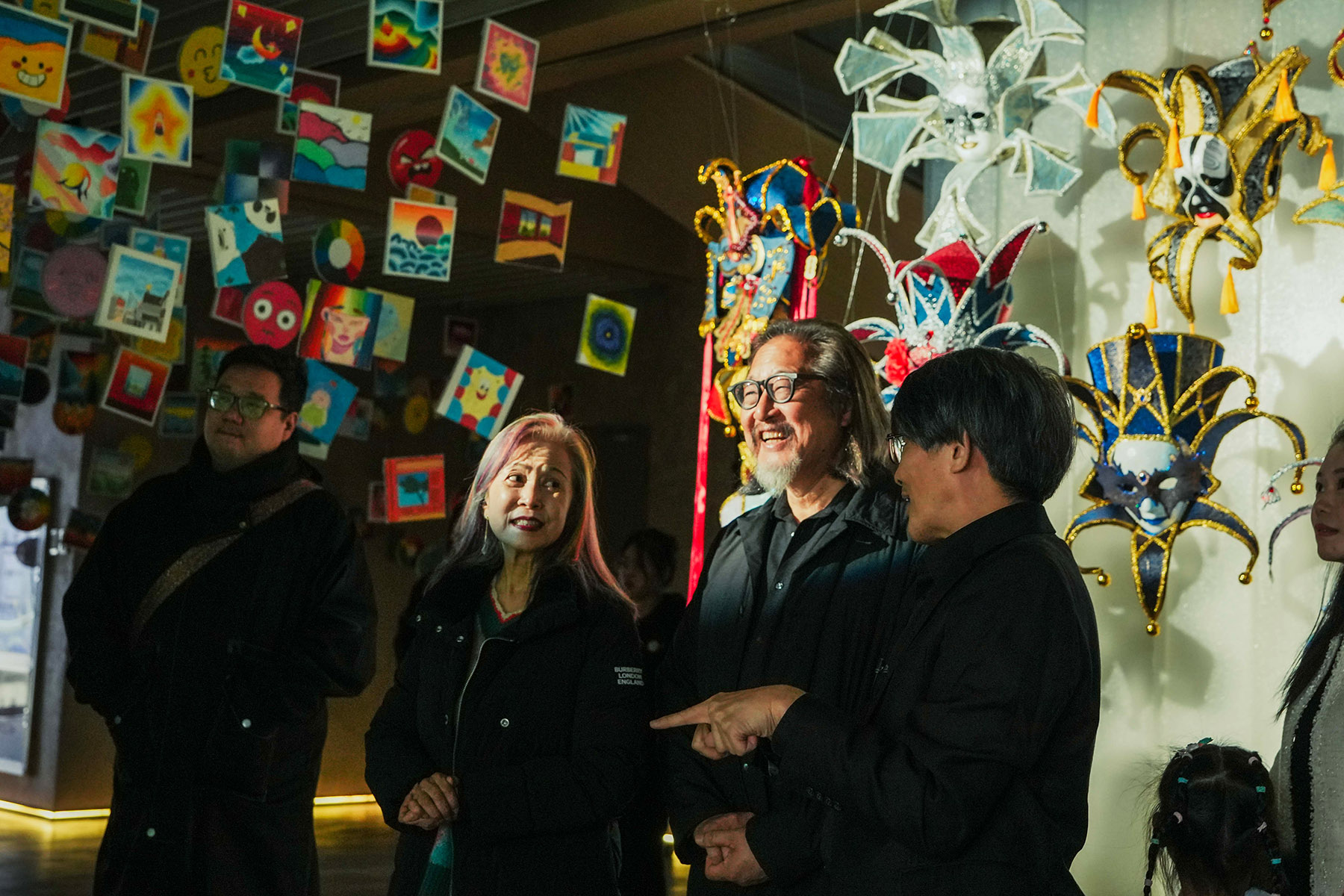
The school's president Liao Weihan, who has years of experience in both Chinese and international stage production, has a clear vision: to train top-tier theater talent and contribute to the flourishing of the national theatrical landscape.
"We want to raise awareness within the domestic theater industry about the importance of stage technology," Liao says. "It's a specialized field that requires expertise. We need trained professionals to bring theater to life. I hope these students will one day take over the work I do on stage production."
The teaching building was originally a department store. After six months of renovations, Liao turned the space into the aforementioned "dream-making space" for students.
At 60, the "chief dream maker" is affectionately called Liao Ye (Grandpa Liao) by the students. He has a chivalrous spirit and a touch of childlike enthusiasm.
He oversaw the design of every detail, personally selecting each piece of furniture, from the desks and chairs to the trash cans. The chairs in the meeting room are colorful, and the lighting in each room is tailored to the specific function of the space. Even the indicator lights at the entrance of the recording studio, the fonts above them, and the color temperature of the lighting were all carefully decided by Liao.
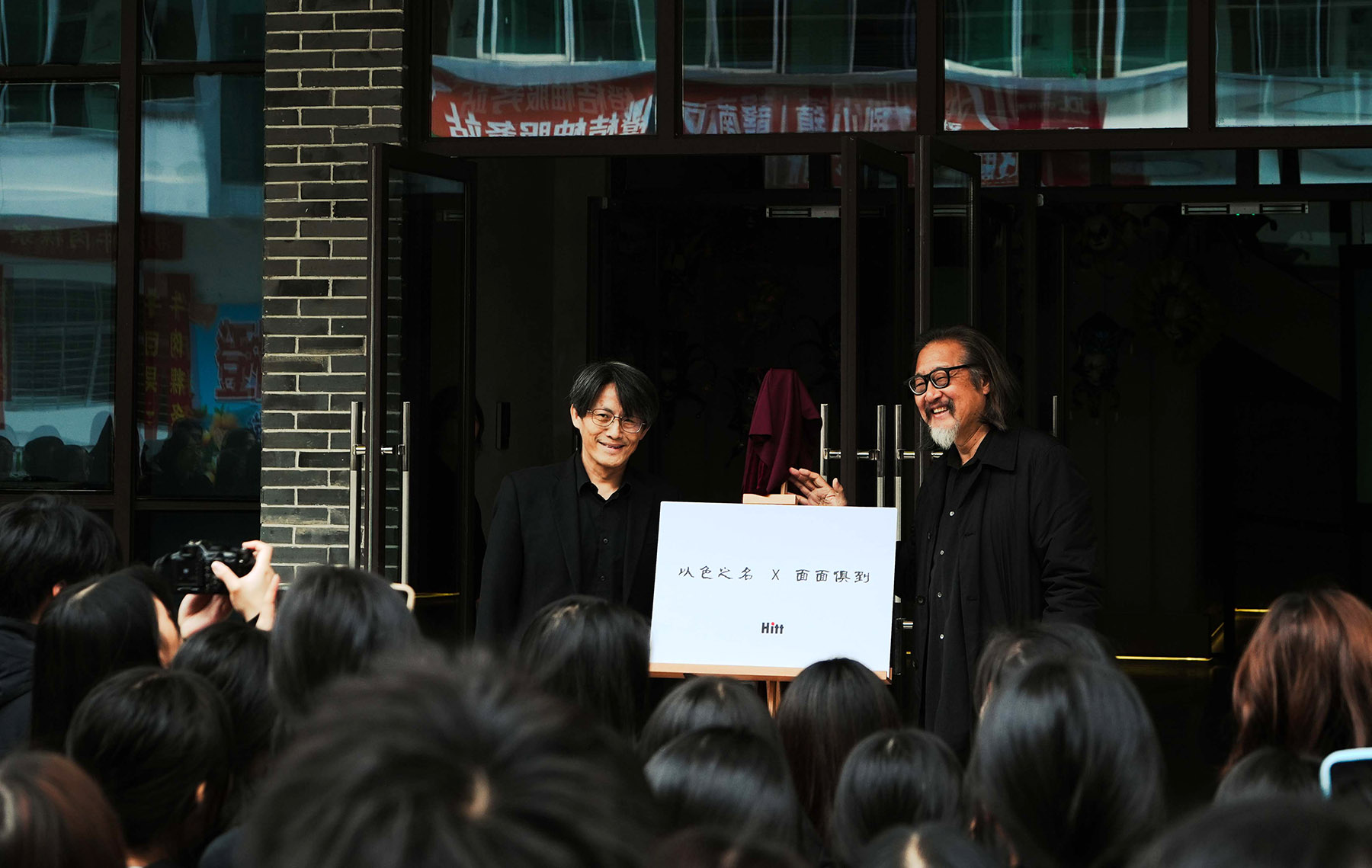
Apart from a conventional lecture hall, the other classes are held in dedicated studios, including international-standard set design, costume practice, and woodworking studios. Liao has thoughtfully arranged everything in these spaces, including the storage of teaching materials.
A romantic at heart, his design for the dream-making space is filled with small, poetic touches — from the gaps between the shelves in the library and the angles at which sunlight filters through the windows to the gradient painted wall and the piano key-like seats on the balcony.
The large glass windows on the first floor of the teaching building were left unchanged. Liao wanted residents to see what he and his students are doing in the hopes of connecting the institute with the community.
"I hope the students will share what they've learned with residents," he says. "We also want to invite our neighbors to come in and see what we're doing. Theater is a way of life."
The new teaching building officially opened on April 8 last year. On the afternoon of the 7th, students were divided into groups of 10, with each group receiving a 100-minute tour. Liao worked nonstop, repeating the tour for 10 different groups.
"This is how I do things. Everything I can give you, I do," he says.
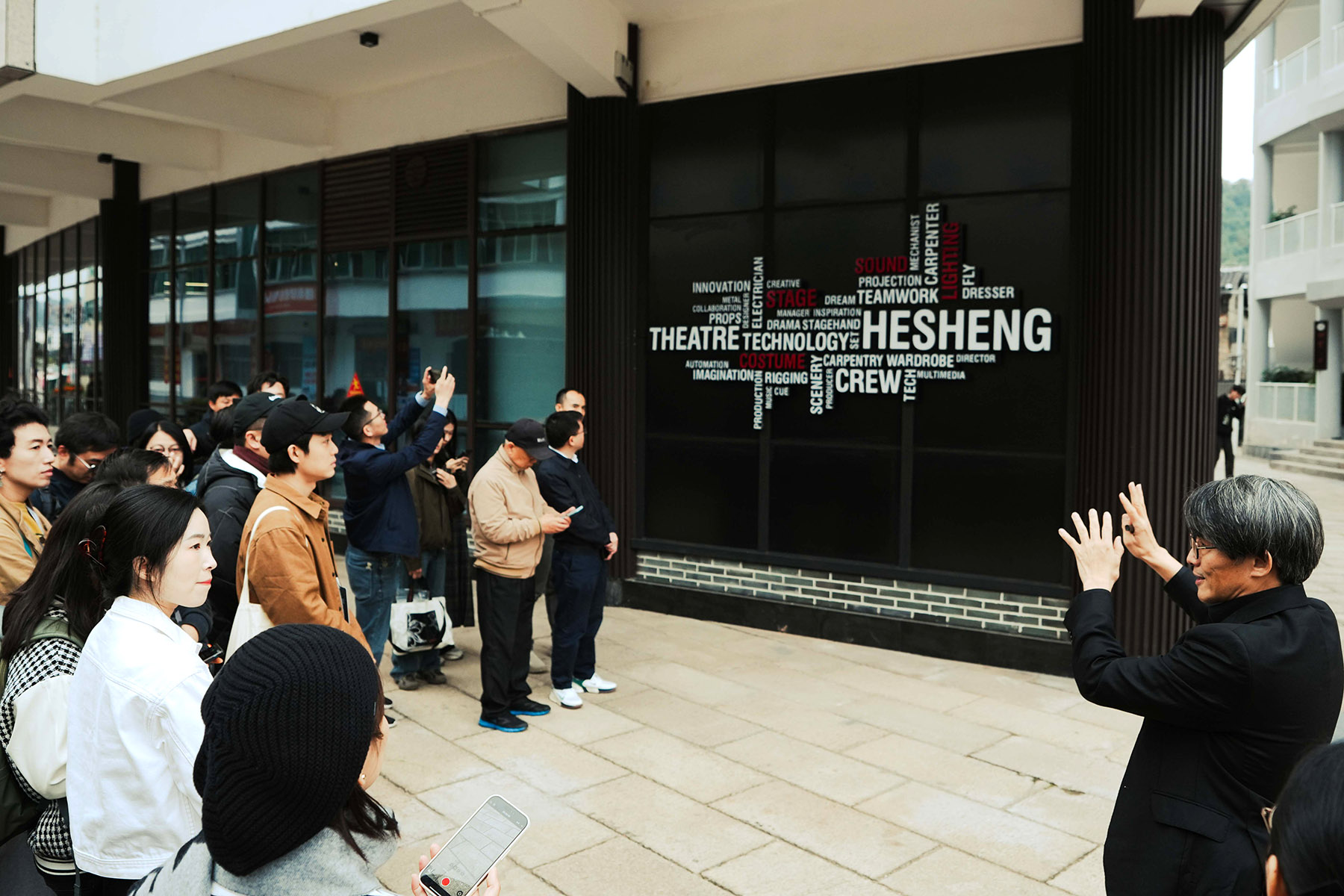
Exploring passion
His educational philosophy centers on the principle of safety first. He aims to instill this mindset not only in his students but also throughout the industry. This ethos permeates every aspect, right down to the smallest details of operations.
For instance, students are not allowed to bring food into the building, as eating is prohibited in a theater. On rainy days, umbrellas must be stored neatly on designated racks at the entrance to prevent water from dripping into the corridors.
"If there is food, it might attract rats, and rats can chew through wires, creating safety hazards," Liao explains. "I want students to develop good safety habits in their daily lives, which are built over time."
On the first day of each academic year, the principal addresses incoming students with a message that reflects his commitment to their future: "From today on, I am the director of our great theater company, and our annual production is your employment."
"This production only succeeds if the students put in the effort," Liao says. "I'm here to help them realize their dreams."
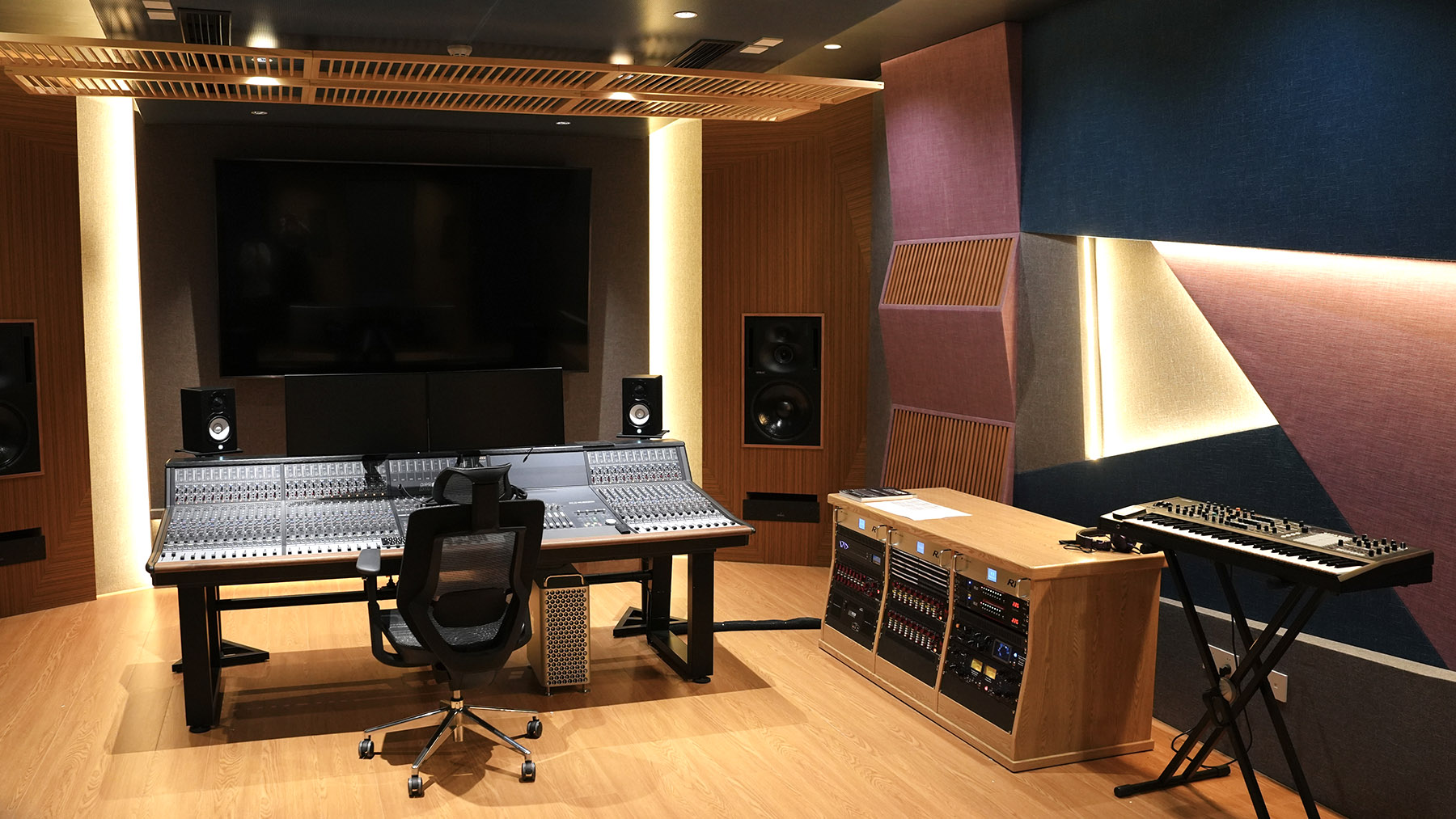
He has structured the curriculum to provide a hands-on, progressive learning experience. In the first year, students focus on general education, while specialized courses are introduced in the second year. They explore a range of professional courses in their first year to determine their specialization.
Specializations are designed to meet industry demands. Courses are taught in a modular format, with expert instructors delivering intensive lessons over short periods.
Liao invites top-tier professionals, including renowned artists and industry experts, to teach. He also integrates practical elements, including specialized English courses for theater and drama analysis classes led by experts such as Chiayi Seetoo, a professor at the Shanghai Theatre Academy.
In addition to practical exams, the dean's chat-room component invites industry figures to share their insights. He believes in preparing students for the real world by teaching them to manage their time and work across different departments in a production.
By their third year, students will need to have completed a semester-long internship. Liao is working to secure partnerships with theme parks, theaters and cultural projects to offer more opportunities.
"Even if students don't pursue theater, they can work as project managers in other sectors," he says. "My goal is to teach them how to start from scratch and tackle challenges with the right attitude."
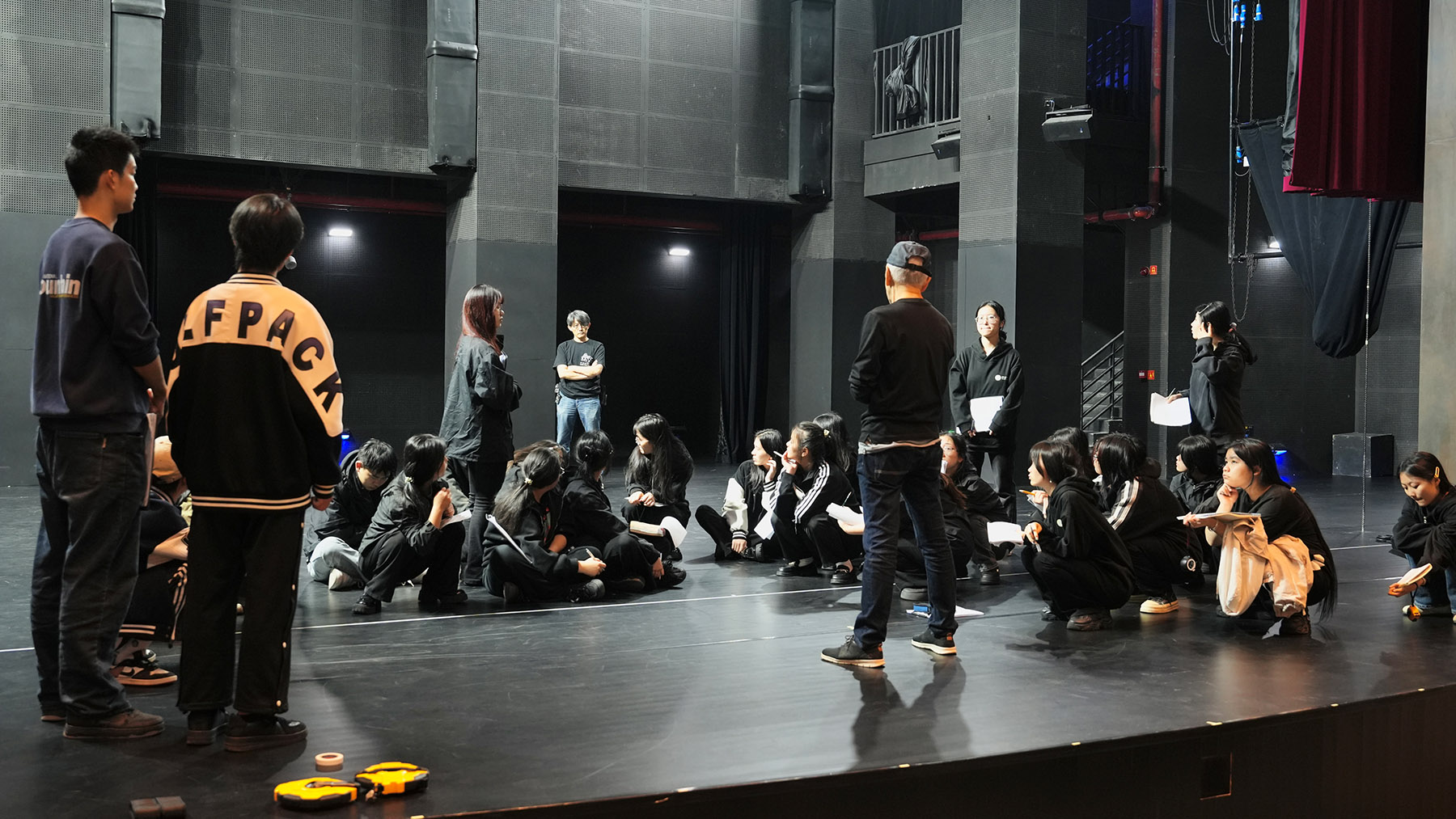
Nineteen-year-old sophomore Wang Ziyan discovered a passion for lighting design during her first-year courses, and chose it as her specialty.
She expected university life to be relaxing but found the specialized courses demanding, yet rewarding. "I get fulfillment from creating different colors and shapes with lighting," she says.
Wang values her industry-expert instructors, who not only teach technical skills but also share insights from their projects. "Their experience helps us avoid mistakes," she says. "I feel a responsibility to them to improve."
The practical curriculum stands out. "We don't just study theory; we actually handle the equipment and experience it firsthand," Wang explains.
She describes Liao as both a mentor and a friend. "He's energetic, enjoys telling jokes, but is also strict when necessary," she says. "From him, we've learned that passion is essential for success in the theater industry."
She also values the design of the building. "We care for it like it's our own. We immediately dispose of trash and handle expensive equipment with great care."
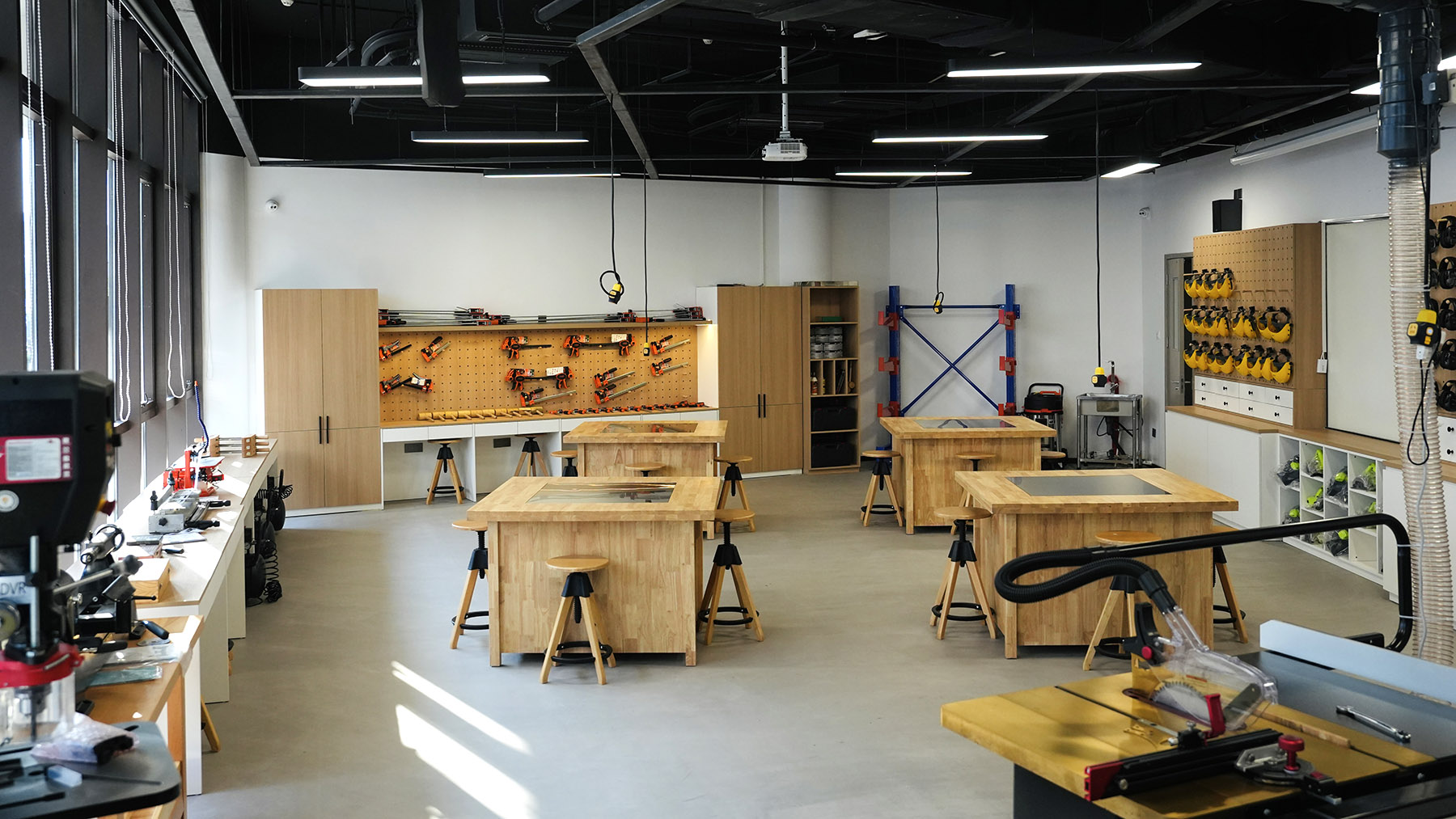
Hands-on experience
The Huichang drama seasons offer students valuable hands-on experience and opportunities to observe theater productions. In addition to volunteering at the festival, Liao encourages students to intern on current productions in the theater village.
Freshman Chen Jiayi, a 19-year-old volunteer at last December's drama season, assisted with tours for guests and also attended several performances.
Chen, who comes from Hangzhou, Zhejiang province, entered the program with little prior knowledge of theater but, after one semester, discovered a passion for stage production. "It opened a whole new world of theater to me," she says.
Liao always takes tools — including a small whiteboard, tapeline, portable chargers, and pens — wherever he goes, a reflection of his professionalism that subtly influences his students.
ALSO READ: Playing Chekhov in China
He has also set alarms for wakeup and lights-out times in the dorms to play classical music, to cultivate a deeper appreciation for beauty among the students.
Play is an essential teaching method. Knowing that his students enjoy gaming, Liao has organized an Honor of Kings tournament modeled after the professional esports competition.
A team of eight students handles everything from the event format to promotional materials. "They even made their own trophies. For the finals, I had them arrange an opening dance, cosplay, a host, commentators, and livestreaming," he says.
The students also designed the tournament's logo and created merchandise. "Through play, I gradually teach them about lighting, stage design, and subtly introduce them to the industry," Liao explains.
Contact the writer at liyingxue@chinadaily.com.cn


